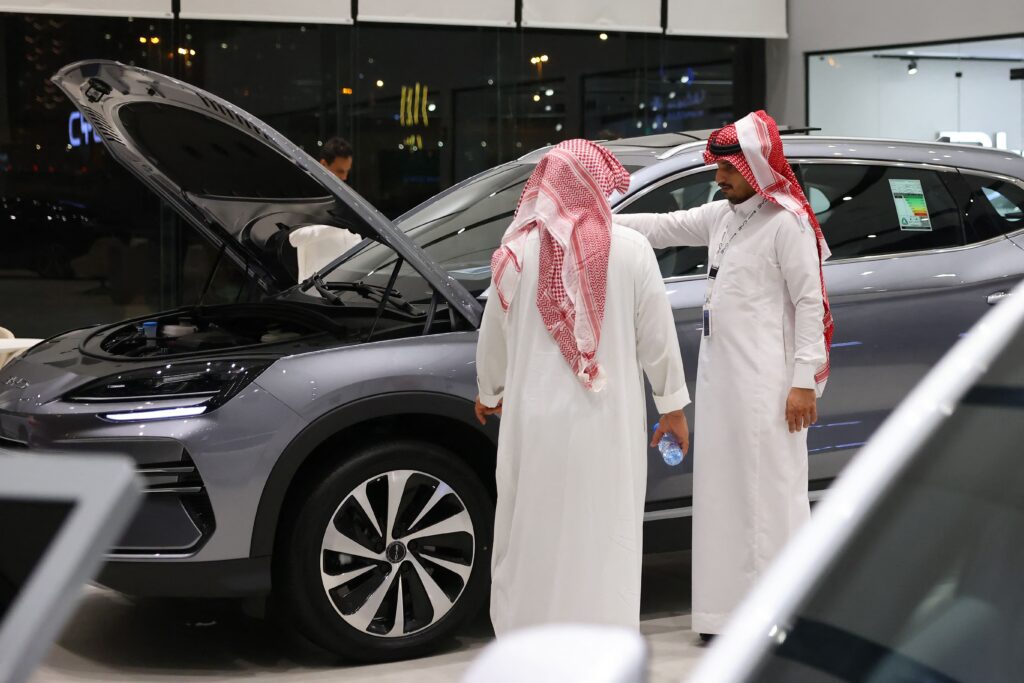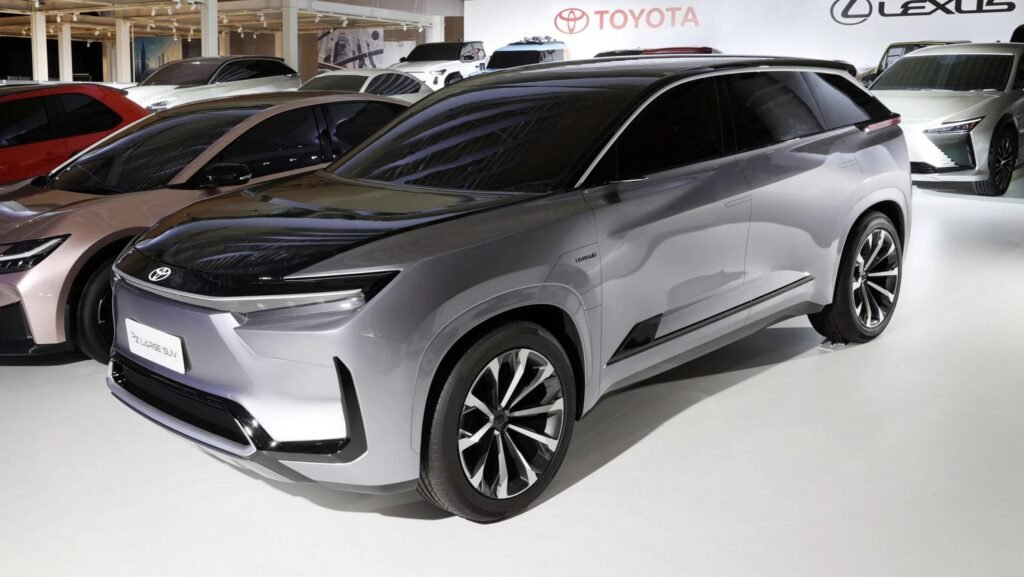The UAE electric vehicle market is undergoing one of the most significant transformations in its automotive history. What was once a region dominated by petrol and diesel vehicles is now experiencing a surge in demand for electric vehicles (EVs). This shift is being driven by a combination of government initiatives, environmental awareness, technological advancement, and consumer interest in sustainable transport options.
Over the past few years, UAE consumers have shown an increasing willingness to embrace electrification. Cars that were once considered futuristic or niche are now becoming mainstream. From luxury brands offering high performance EVs to practical daily commuters, the market is diversifying rapidly. The UAE is positioning itself not only as a regional leader in electric mobility but also as a hub for innovation and sustainability in the automotive sector.
Surge in Electric Vehicle Adoption
The rise in electric vehicle adoption in the UAE is remarkable. More consumers are now looking beyond conventional vehicles and considering EVs for their environmental benefits, lower running costs, and modern technological features. Many residents are drawn to the quiet, smooth ride of electric vehicles, as well as their advanced features such as regenerative braking, AI assisted driving aids, and smart energy management systems.

One of the most notable aspects of this surge is the diversity of buyers. It is no longer just environmentally conscious individuals or technology enthusiasts; families, commuters, and even corporate fleets are transitioning toward electric vehicles. Taxi services, car rental companies, and government fleets are increasingly incorporating EVs, creating a visible shift in the everyday traffic of the country.
This growth is not limited to a single city. Major urban centers like Dubai and Abu Dhabi are leading the charge, while smaller emirates are also beginning to adopt supportive measures. Electric vehicle registration numbers are rising steadily, reflecting a trend that is likely to continue over the next decade.

Urban Centers Leading the Charge
Dubai has emerged as the UAE’s primary hub for electric vehicle adoption. With a well developed urban infrastructure and strong government support, the city has become a model for EV integration in the region. Charging stations are being installed at shopping malls, residential complexes, office buildings, and along highways to accommodate the growing number of EVs.
Abu Dhabi is also witnessing significant growth. With strategic plans to expand its charging infrastructure and incentivize the purchase of EVs, the city is promoting a culture of sustainability and technological innovation. Both emirates are taking the lead in transforming the UAE electric vehicle market into a well organized and accessible ecosystem for consumers.
Beyond the major cities, smaller emirates are also adopting electric vehicles, albeit at a slower pace. The awareness about environmental issues, coupled with the desire for modern mobility solutions, is gradually reaching more residents across the country. This trend is expected to accelerate as infrastructure and incentives continue to expand nationwide.
Government Initiatives and Incentives
The UAE government has played a pivotal role in encouraging the growth of the electric vehicle market. A variety of initiatives, incentives, and policies have been introduced to make EV adoption more attractive for both individual consumers and businesses.
Financial incentives, including subsidies and reduced registration fees, help offset the initial cost of purchasing an electric vehicle, which is often higher than traditional cars. These measures make EVs more accessible to a wider audience, creating an environment where sustainability aligns with financial practicality.
In addition to financial support, the government is actively expanding the charging infrastructure. Public and private charging stations are increasing in number, offering residents convenient access to energy replenishment for their vehicles. Some areas even provide ultra fast charging points, significantly reducing downtime for drivers.
Regulatory measures also favor the adoption of electric vehicles. Policies encouraging zero emission transport, city planning that incorporates EV friendly infrastructure, and requirements for new residential developments to include charging points are all contributing to the rapid growth of the market. These proactive steps have created a strong foundation for sustainable mobility in the UAE.
Environmental Awareness and Consumer Motivation
One of the key drivers of growth in the UAE electric vehicle market is environmental consciousness. Consumers are becoming more aware of the impact of traditional vehicles on air quality and carbon emissions. Electric vehicles provide a cleaner alternative, helping residents reduce their carbon footprint and contribute to national sustainability goals.
For many, the motivation goes beyond environmental concerns. The technological appeal of EVs, including digital dashboards, autonomous driving capabilities, and smart connectivity features, attracts a tech savvy audience that values innovation. Additionally, lower fuel costs, reduced maintenance requirements, and longer vehicle lifespans add to the appeal, making electric vehicles a practical choice for everyday use.
The combined appeal of environmental responsibility and technological advancement is creating a strong and diverse consumer base for the UAE electric vehicle market. As awareness grows and technology continues to improve, more individuals and businesses are likely to switch from conventional vehicles to electric alternatives.

Technological Advancements Driving Adoption
The rapid adoption of electric vehicles in the UAE is also fueled by technological innovation. Battery technology is evolving, leading to longer driving ranges, faster charging times, and more efficient energy usage. Modern EVs can travel hundreds of kilometers on a single charge, making them increasingly viable for daily commutes and long distance travel.
Smart charging solutions, mobile apps for locating charging stations, and vehicle to grid technology are also contributing to a more convenient and user friendly EV experience. These innovations enhance consumer confidence and reduce barriers to adoption, making electric vehicles a more practical option for a broader audience.
Moreover, automakers are expanding their EV lineups, offering a variety of models from luxury sedans to affordable compact cars. This wider range of options allows consumers to select vehicles that best match their lifestyle, preferences, and budget, further accelerating the growth of the UAE electric vehicle market.
Challenges Facing the Market
Despite impressive growth, the UAE electric vehicle market still faces some challenges. Insurance costs for electric vehicles are generally higher than those for traditional cars. The complexity of EV technology, coupled with the need for specialized repair facilities, contributes to increased premiums. Overcoming this barrier will be crucial to encouraging broader adoption.
Battery life and replacement costs are another concern for potential buyers. While technology is improving, some consumers remain hesitant due to worries about long term durability and maintenance expenses. Addressing these concerns through warranties, battery leasing options, and consumer education is essential.
The used EV market is also in its early stages. Many second hand electric vehicles have slower sales compared to conventional cars. Dealers are adjusting prices and offering incentives to attract buyers, but the market requires further development to ensure a healthy ecosystem for pre owned EVs.
Infrastructure, while growing, still faces limitations. Expanding the number of charging stations, improving accessibility in remote areas, and offering ultra fast charging solutions will be critical to support the increasing number of electric vehicles on the road.
Corporate and Fleet Adoption
Businesses are increasingly integrating electric vehicles into their fleets. Taxi services, delivery companies, and corporate vehicle programs are adopting EVs to reduce operating costs and meet sustainability targets. Fleet adoption not only provides practical benefits but also contributes to greater visibility and normalization of electric vehicles among the general public.
Government fleets are also transitioning to electric vehicles, setting a strong example for private consumers and companies alike. The use of EVs in official capacities demonstrates confidence in the technology and helps drive broader market acceptance.

The Future of the UAE Electric Vehicle Market
Looking ahead, the UAE electric vehicle market is poised for sustained growth. Continued government support, technological advancements, and rising consumer awareness will drive adoption rates higher in the coming years.
The development of renewable energy sources, such as solar power, will further complement the growth of electric mobility, allowing vehicles to be charged sustainably and cost effectively. Integration with smart city initiatives, urban planning, and digital infrastructure will also enhance the convenience and appeal of electric vehicles.
The UAE is not only focusing on increasing the number of electric vehicles but also on building a comprehensive ecosystem. This includes charging infrastructure, service networks, and educational programs to ensure that both consumers and businesses are equipped to embrace the shift toward electrification fully.
As awareness grows and technology advances, the UAE is likely to become a regional leader in electric mobility, setting an example for neighboring countries and attracting investment in clean energy and automotive innovation. The transition to electric vehicles represents a significant step toward sustainable urban development, reduced emissions, and a greener future for the region.
Conclusion
The UAE electric vehicle market is experiencing a transformative period. From early adoption by environmentally conscious consumers to mainstream acceptance across urban centers, the shift toward electrification is evident. Government initiatives, technological advancements, environmental awareness, and consumer motivation are all driving this growth.
While challenges such as insurance costs, battery concerns, and infrastructure limitations remain, proactive measures and continued investment are addressing these issues. The future looks promising, with electric vehicles set to play a major role in the UAE’s sustainable development goals.
The UAE electric vehicle market is no longer a niche sector; it is becoming a central part of the country’s automotive landscape. As adoption increases, the market will continue to evolve, creating opportunities for innovation, investment, and sustainable mobility. For residents and businesses alike, the choice to go electric is now not just an option but a meaningful step toward a cleaner and more technologically advanced future.
Do follow UAE Stories on Instagram
Read Next – All UAE University Students to Receive Free Google Gemini Subscription












